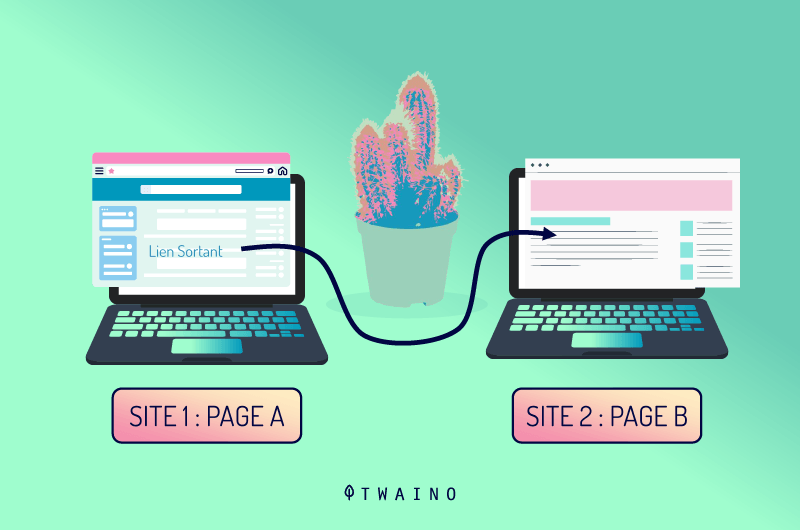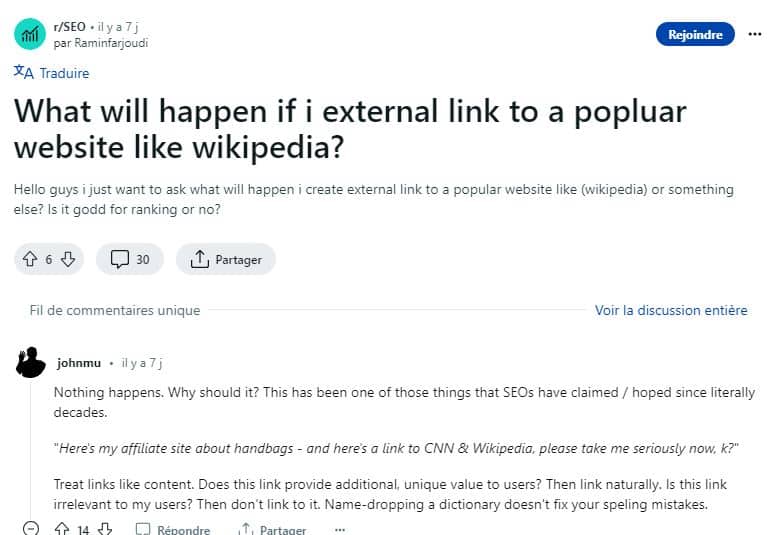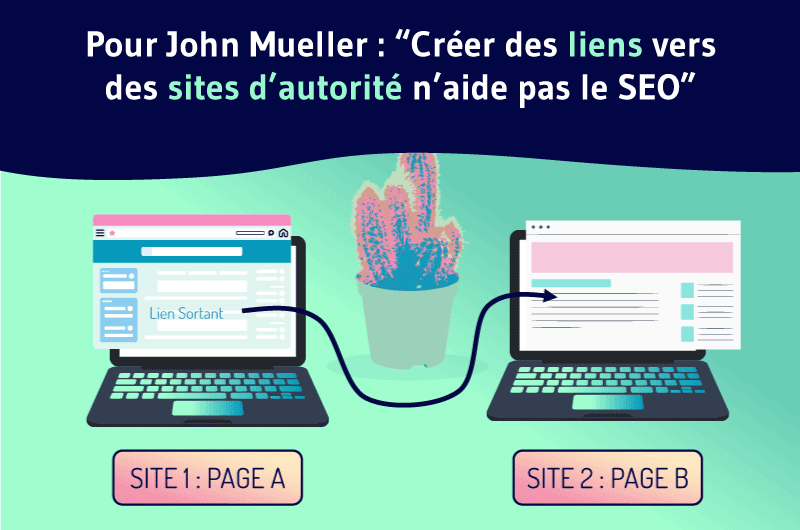If you’re an SEO professional, you probably agree with the idea of creating outbound links for SEO purposes, preferably to high-authority sites.
Like many SEO specialists, you’ve no doubt been hit hard by the announcement that this has no impact on rankings. Even though it comes from John Mueller, it’s food for thought.
In this article, we’ll find out what’s really going on with outbound links and Mr. Muller’s explicit answers on their possible impact on rankings.
Outbound links to authority sites don’t improve rankings
In a recent online conversation with the SEO community, John Mueller corrected a common misconception about linking to popular sites.

Mueller was taking part in a discussion on the r/SEO subreddit, a forum where SEO experts share ideas and information about the latest developments in their field.
According to John Mueller, linking to high-authority sites doesn’t help SEO. You need to concentrate on useful links that benefit Internet users.
In other words,
- Linking to popular, high-authority sites has no impact on SEO;
- Links should offer value to users;
- Links should not be created solely to increase authority and rankings in search results.
He pointed out that linking to sites such as Wikipedia does not affect search rankings, dispelling an enduring myth among SEO practitioners.
The user’s question
The user was asking whether linking from a small site to a high authority site like Wikipedia or CNN can impact the small site’s ranking in search results.
This question concerns the impact of a site’s outbound links on its SEO and ranking. The user wanted to know whether search engines consider the small site to be more reliable when it links to sites recognized as authoritative.
Mueller’s straightforward answer
In response to this question, John Mueller said:
“Nothing’s happening. Why should it happen?”
John Mueller

According to him, this idea is a mistaken belief that SEO professionals have had about external links for decades.
Mueller also illustrated his point with a humorous example, saying:
“Here’s my handbag affiliate site – and here’s a link to CNN & Wikipedia, please take me seriously now, okay?“
John Mueller
His statement underscores the misconception that linking to high-authority sites is akin to borrowing their credibility.
In fact, link building should bring value to users. Mueller stressed the importance of treating links as content. He advised:
“Does this link offer additional, unique value to users? Then create the link in a natural way. Is this link irrelevant to my users? Then don’t link to it.“
John Mueller
His comments suggest that the decision to link to another website should be driven by its relevance and potential value to the web user, rather than an attempt to manipulate search engine rankings.
Mueller stated:
“Quoting a dictionary doesn’t correct your spelling mistakes.“
John Mueller
This metaphor sums up his point: linking to a popular site doesn’t necessarily improve the quality or credibility of your website, just as referring to a dictionary won’t automatically correct your spelling mistakes.
The wider context
The Reddit user’s question shows a common misconception about SEO that has been around for a long time.
Many SEOs mistakenly believe that linking to high-authority websites will automatically improve their rankings. But this is not the case.
Mueller’s comments remind us that search engines are primarily concerned with providing value to Internet users through relevant, high-quality content.
The focus should be on building links to sites that are useful to users, not simply on chasing authority or links.
In a nutshell
The main point of Mueller’s answer is that relevance and usefulness to the user should guide link building choices.
The decision to create a link should be based on how it enhances the user experience, not on its potential to improve site rankings.
The content you link to should add value to your text. You can achieve this objective if the linked content:
- Deepens an aspect ;
- Provides evidence or further reading to support an assertion;
- Clarifies a complex term or concept;
- Directs users to relevant products, services or resources.
Like the text on your website, outbound links should be relevant and useful. So, does this statement change anything for you when it comes to SEO?



